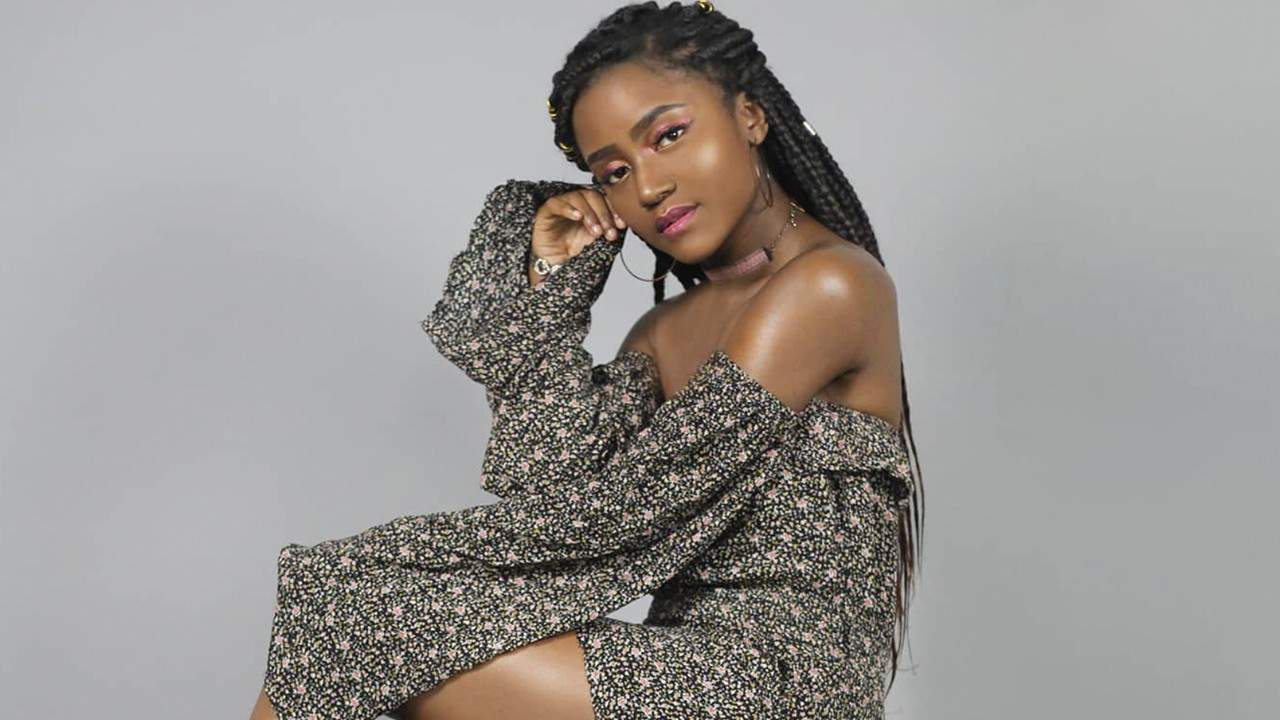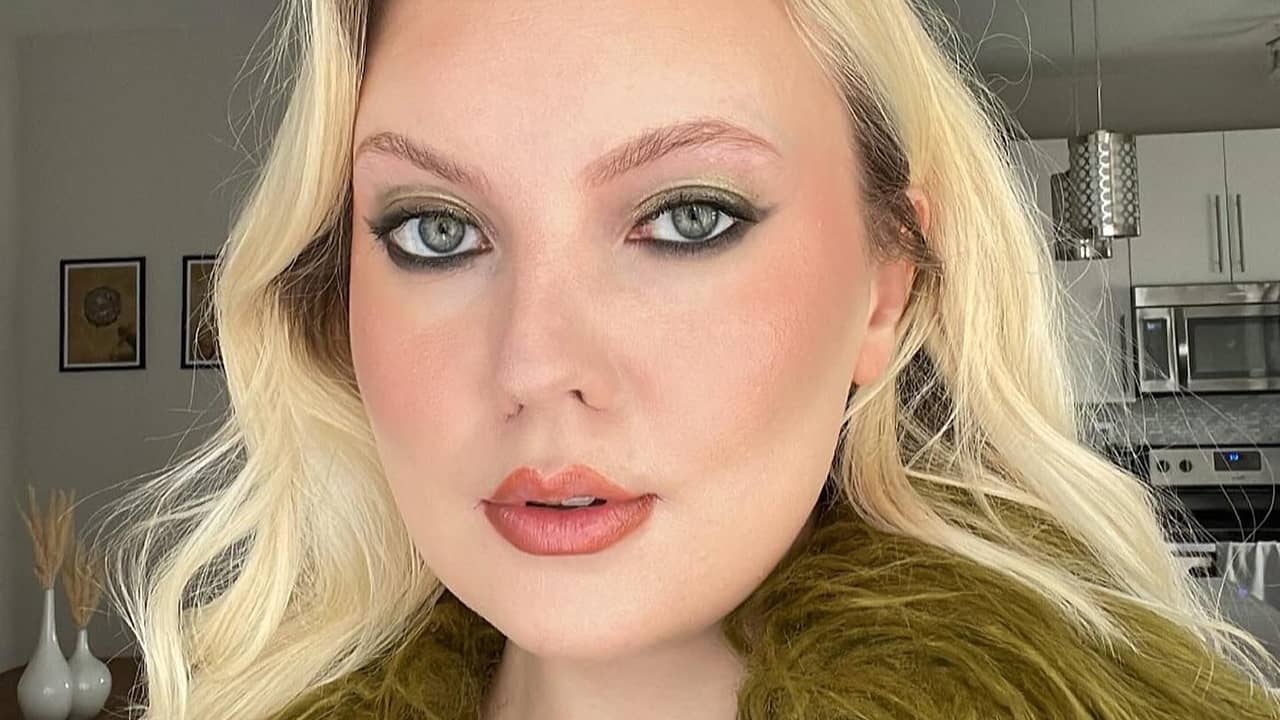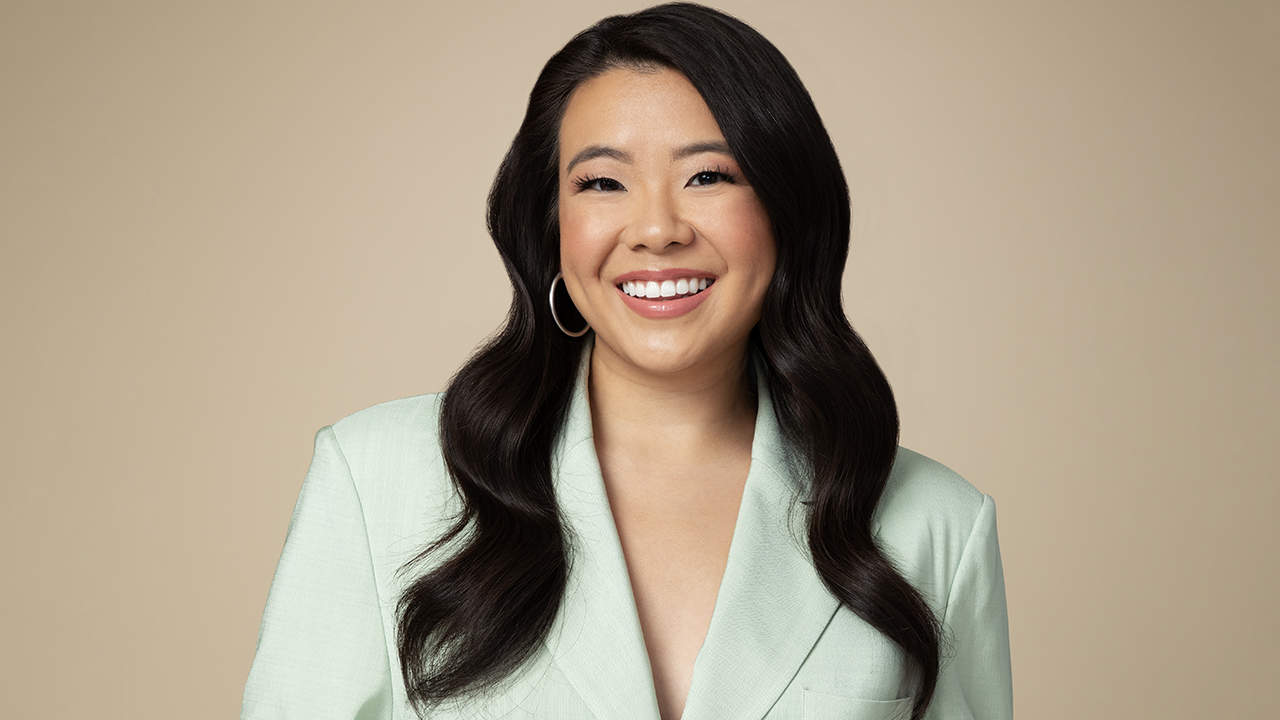Want to write the perfect resume or nail that job interview? Let us introduce you to Hanna Goefft. Known on TikTok as “Hanna Gets Hired,” Hanna is a marketing manager and creator who shares educational content about negotiating contracts and, well, getting hired.
Before setting out on her content creation journey, Hanna had already trod a long career path, traversing the realms of accounting, tech recruiting, and now marketing. In short, Hanna has been hired — a lot. And it’s this unique vantage point that has prompted her to dive into TikTok’s career niche and launch Hanna Gets Hired.
Drawing from her experience and perspective on the hiring process, Hanna shares valuable job-search strategies and best practices with an audience over 160K strong. Think leveraging LinkedIn data to boost your résumé, using ChatGPT to predict job interview questions (so you’re never left scrambling for answers at the last minute!), and negotiating the salary you actually want.
We sat down with Hanna to talk balancing content creation with her professional career, tips for growing on TikTok, monetization strategies, creating digital products, and her #1 goal as a creator. Let’s get into it!
You’re a marketing manager and also a creator who shares educational content about getting hired and negotiating contracts. How did you get into content creation in the first place?
My start in content creation was inspired by my winding career journey, and everything I’ve learned along the way. I currently work full-time as a marketing manager at a hiring marketplace company. In this role, I stay closely connected to the hiring market, particularly in the tech industry, so I can share valuable job search strategies and best practices with the company’s user base.
Interestingly, my career journey started in accounting at one of the “Big 4” firms. I was a high performer but quickly realized that job was not aligned with the type of work I wanted to be doing, so I made the bold and terrifying decision to pivot into the world of tech executive recruiting in Silicon Valley. Leaving accounting wasn’t easy. It kicked off a long and challenging process of self-reflection, upskilling, and job searching. But it set off the chain reaction that eventually led me to create Hanna Gets Hired and delve into TikTok’s career niche.
Having experienced all three sides of the hiring process — as a job-seeker, recruiter, and hiring manager — I’ve witnessed firsthand how daunting it can be. I quickly became the point person for friends and mentees to share advice on navigating challenging job search and career situations.
Over the past few years, I also saw the rise in short-form content creation on TikTok, and started to understand the power of TikTok’s algorithm to amplify valuable content, regardless of a creator’s size.
How does being a creator complement your professional career?
Being a content creator and a full-time digital marketer are, luckily, very complementary roles. Social media is a powerful piece of the marketing stack, and if I’ve learned anything from creating content, it’s how much knowledge goes into excelling across social media platforms (and the respect social media managers deserve for it!).
I’m trying to approach Hanna Gets Hired like a professional marketer, and invest in the content strategy and brand. I’m also a big believer in building professional skills through side projects outside of your full-time role, and think that growing this platform will only make me a more well-rounded marketer.
You only started posting on TikTok in late 2022 and have since established a strong presence on the app. Do you have any tips for growing on the platform?
Treat it like a job. It’s the same advice I’ve heard from nearly every social media guru out there, but consistency really is key.
Since my first TikTok video, I post every day (give or take). The benefit of needing to show up every day is that it affords you room to experiment with different styles and topics, learn what your audience responds well to, and either double down on topics that do well, or pivot accordingly.
Put in effort to learn about your audience. Who follows you? What do they care about? What emotions or struggles do they go through, and how can you help solve them? Your content should deliver value, or people just won’t care. And this doesn’t always need to be as clear cut as “5 tips to XYZ.” Sometimes, value can be the feeling that watching your video is like listening to a friend. You’ll hear variations of this, but there are four types of “valuable” content: content that educates, entertains, engages, or inspires. I think that a good creator delivers a variety of content that hits on all four.
What about Instagram? You’ve only been posting there for about three months. Was it intentional to grow your TikTok account first before branching out?
I took to TikTok first for the potential for growth, and quickly got comments from people looking for my Instagram handle. They thought it was [surprising] that I didn’t have one!
My approach to Instagram so far has been to repost my higher-performing TikTok content as a way to reach a broader audience. But I’m investing so much time into my TikTok content that [my Instagram] hasn’t yet gotten the attention it deserves.
Over time, I’d like Instagram to be a place where my community can get to know me and my life, with TikTok as the window into my brain. I’ve had a private, personal instagram for years that I’m debating making public — but we’ll see!
Tell us the different ways you monetize as a creator. Which ones have worked best for you?
I’ve monetized as a creator through brand partnerships, affiliate marketing, selling my own digital product, and participating in the TikTok Creator Fund (and now the Creativity Program). By far, I’ve had the most success with brand partnerships.
My content niche is unique in that it’s quickly afforded me a lot of opportunities to collaborate with brands, because my audience is coming to me for resources and guidance. My approach to brand partnerships is to share tools and services that will make my audience’s lives easier. I’ve had the opportunity to partner with some amazing companies (like InHerSight, Teal, Twenty, Roadtrip Nation, and more) that are trying to revolutionize the way people search for jobs and get ahead in their careers.
I try to partner with brands whose values I share, and I would never recommend a product to my community that I wouldn’t use myself. But, just as frequently, I recommend products and services that aren’t sponsored. [With] this approach, I don’t feel an imbalance between selling to my audience and providing organic content, because the brands I partner with are building valuable resources worth sharing.
You’ve created a Performance Review & Raise Negotiation Guide for those wanting to advance in their career. What sparked the idea for creating this guide?
I feel so strongly about advocating for yourself at work. I’ve got a naturally bold and confident personality, and even for me, the negotiating process was awkward and intimidating. I wanted to create a guide to empower people to tackle these tough conversations strategically, especially if it’s their first time. I also recognize that the power is particularly imbalanced in these negotiations: companies have access to boatloads of compensation data to determine pay increases, and employees rarely get a say in the process.
The guide started from a slide deck I created to negotiate for several raises in my current role — a success story I’ve since shared on TikTok. The deck was an effective, concise way to demonstrate and quantify my achievements. I scrubbed the information specific to my role, converted it into a template, and expanded the deck into a complete guide that covers the entire negotiation process — from planting the seeds early with your manager to researching your target salary, and more.
What tips do you have for creators looking to build and sell their own digital product?
If you’re planning on selling a digital download, it’s important to pack it with as much valuable information as possible (and price it accordingly!). Someone trading you their dollars for your resources is an act of trust. Imagine if you spent $10 for a digital download and started reading through, only to find fluffy, vanilla information that you could easily find on the internet. You wouldn’t want to purchase from that same creator. It’s worth your upfront investment of time, and potentially resources, when creating a digital download, to make sure you’re offering a product that will bring people back for more.
I think the value you provide to your customer when creating a guide or digital product is to consolidate the research on a topic and apply your own expertise. There’s a very high chance that you know more about a particular topic than the lay-person, and by creating a guide, you’re designing a one-stop shop for somebody who wants to learn about your topic and doesn’t want to spend the time doing research. You’re also applying your own perspective, experience, and expertise, which your buyer won’t be able to find elsewhere.
How do you go about pricing your digital products?
I want to call it “market research,” but I really just explored other creators in my niche and the digital products they offered. Nearly everyone in the career-slash-job search category has some sort of interview guide at varying prices, and I assume varying complexity. Based on this research, I priced the Performance Review & Negotiation Guide guide at $12. It’s a unique offering I didn’t see elsewhere, but I also wanted it to be accessible.
What’s your strategy when it comes to marketing your digital products online?
Like a good content marketer, I try to create content that tees up the user’s problem and offers the Guide as a solution, focusing on their pain points, proposing advice, and then pitching the Guide as the CTA.
I also have a video that walks through an old version of the template before I adapted it into a complete guide. I’m confident that this sneak peek-style video has driven a lot of conversions.
Aside from that, I’m not pushing sales too aggressively. If I were, I’d think about creating a free digital download to capture and nurture those emails to convert them into buyers.
How do you manage to divide your time between your 9-to-5 as a marketing manager and being a creator without burning out?
This is a great question, and something I’m definitely still navigating! I learned quickly working at a tech company that ruthless prioritization is crucial. I’m fortunate to have opportunities of varying sizes land in my inbox nearly every day, but I’ll just never have the time to see each one through, and it’s important that I’m clear on my priorities as a creator.
More tactically, I try to only attack one part of the content creation process at a time. I’ll dedicate a few hours in the evenings to research and script out several videos, a few hours throughout the week to record multiple videos, and I’ll try and knock out rounds of editing across multiple videos all at once. Each part of the process gets pretty time-consuming, and batching them out like this, rather than trying to complete an entire video from start to finish, has been the most effective.
One aspect of content creation and burnout that I don’t see talked about enough is mental health. Being a content creator can be a particularly isolating experience. On TikTok, you’re at the mercy of the algorithm, and dissociating your value as a creator from your content’s metrics requires some mental gymnastics that I’ve not quite yet mastered.
It’s also very vulnerable: I’m frequently reaching into my psyche and throwing my thoughts up onto the internet for anyone to comment on. And it blows my mind every day how much effort people on the internet put into spreading negativity and bringing others down. Connecting with other creators that know how this feels is the best way I’ve found to reality-check this experience.
What are the biggest areas of growth you’ve seen in yourself since you became a creator?
A big source of stress and anxiety for me since graduating college was not knowing what I wanted to do in my career. I obviously had a few jobs that didn’t resonate. I’m the type of person that needs to be 110% invested in what I’m doing, or I can’t help but think about my next goal.
I’ve practiced creative hobbies my entire life and always yearned for a career that incorporates creative practice. I’ve also felt the entrepreneurial itch, and content creation has been an exciting way to combine both. I feel like it’s pulled my head above the clouds a bit — I can now see for myself that there is a way to pursue a career and generate income outside of the traditional 9-5. I’m not ready to fully make that leap yet, and I don’t know if that’s what I’ll ultimately want, but I feel so empowered to work on building something that is fully my own.
Finally, what’s your ultimate goal as a creator?
I’m early on in my content creation journey, and am still defining my voice and the story I want to tell. My North Star is that I want to empower others through my experiences, especially people that don’t have the opportunities, access to resources, or confidence to advocate for themselves.
[My journey] started with careers and the job search, but I know it will evolve as I continuously learn about the world and myself. My goal is to build a multi-disciplinary creative career for myself, and I am beyond excited to explore the opportunities that come my way.
This interview has been edited for clarity and length.
Photos: Courtesy of Hanna Goefft
Follow The Leap on TikTok, Instagram, and YouTube for more creator stories. We also make a newsletter.



